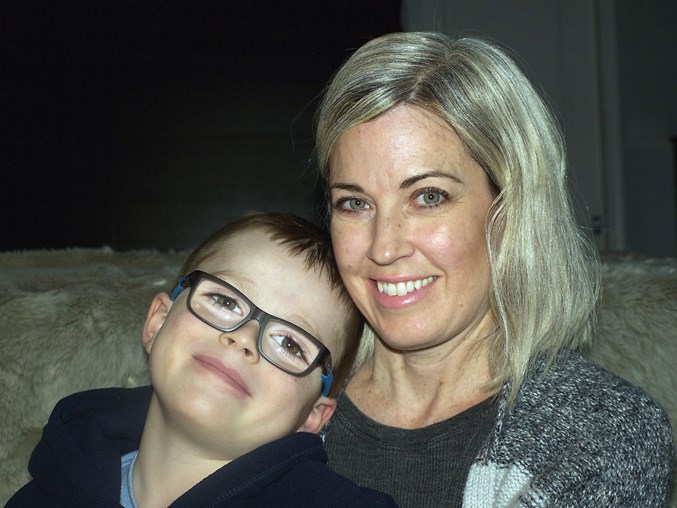Most people cringe when they have to get a needle for a blood test.
But for seven-year-old Cooper Higgins it’s just part of his monthly routine. In fact a year ago he was getting them weekly.
“He’s such a trooper, he’s so brave,” said his mother, Kelly Higgins.
Life for the family changed dramatically two years ago, one week before Mother’s Day, when Kelly dropped her son off at Kindergarten with what looked like a normal bruise on his side.
When she came to pick him up, the bruise had tripled in size.
She took Cooper to the doctor, who did some bloodwork and sent the results to a lab. Later that night, the family got a phone call from the Stollery Children’s Hospital.
“They said pack your bags and come in immediately,” said Kelly.
Cooper was diagnosed with idiopathic thrombocytopenic purpura (ITP) — a very rare blood disorder with no known causes.
It causes a massive shortage of blood platelets, essentially preventing blood from clotting normally. Most people have between 150,000 to 400,000 platelets per microlitre of blood. Cooper had 6,000.
It’s completely robbed him of his childhood.
“I felt so guilty. He really wanted to go outside and play,” said Kelly. “He would beg me. In the winter he would want to go tobogganing, he said he would wear his helmet and hockey equipment.”
Cooper stopped playing hockey and had to be home-schooled because of his condition. A simple nose bleed could be fatal and even a minor bump on the head could lead to internal bleeding in the brain.
Over the next year, the family cycled through medication and treatments, trying anything they could to make a difference. But nothing worked longer than a few weeks and often the side effects were even worse.
Kelly estimates they have spent thousands of dollars on medicines. However, they finally found something that is working ... at least for the time being.
Called Eltrombopag, the experimental drug was only recently approved for use in children. However, over the last few months, Cooper’s platelet levels have jumped to between 30,000 to 50,000 platelets per microlitre.
“It’s expensive. We’re lucky to have the coverage we do, but he takes one pill a day and it’s $150,” she said. “It can’t be taken with food, so we have to wake him up at 3 a.m. to give him the pill each night.”
Now almost eight, Cooper is back in school, though he still has to wear a helmet. He was recently given the go-ahead to start skating in the family’s backyard rink again, but Kelly said she has been warned the medication could stop working.
“We live day by day,” she said. “That’s all we can do. Live our lives to the fullest and be present in the moment.”
Kelly said the family has learned some profound lessons through the whole experience, having met some incredibly caring people and how to work through a state of constant fear.
She said families dealing with this condition or other conditions should reach out to each other and help each other out. And above all be patient.
“People don’t know how to respond, but I know they’re trying to help us feel better,” she said. “Knowing people care is big. There’s a lot of fear at first, but it does get easier. Eventually you stop thinking about fear, start sleeping again and start trying to live your life.”
The family is staying positive and hoping for the best. Kelly said their hope is to see Cooper’s blood platelets get to around 100,000 per microlitre so he can enjoy being a kid again.
“He is tough and has stayed very positive through all of this. We know there’s going to be more tough decisions to make and we know this medication is temporary or could stop working. But for now he is back to his goofy, sweet, active self.
“We’ve put this poor kid through so much,” she said. “He just wants his life back.”



